Homemade Dinner Rolls are the perfect thing to serve with any meal. These yeast rolls are soft and fluffy, with just a hint of sweetness. You only need a few ingredients to make this dinner roll recipe, and it’ll complete the meal beautifully.
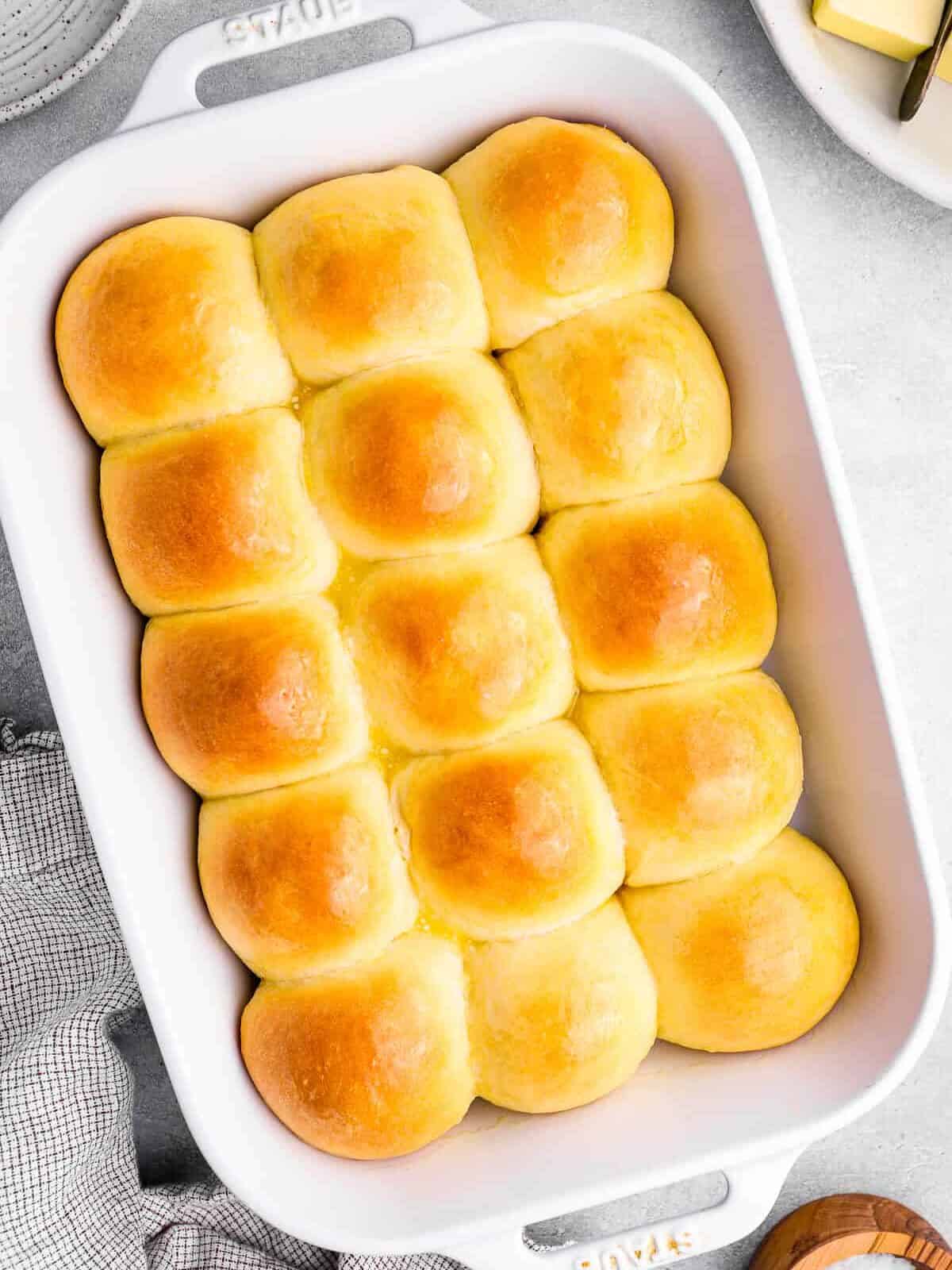
What’s in this Dinner Rolls Recipe?
These are the absolute best dinner rolls because they’re simple and delicious, and they go with everything. No meal is complete without these soft rolls on the table!
- Bread Flour: Gives the rolls a great chew, but you can substitute all-purpose flour.
- Instant Yeast: Helps the rolls rise in the oven. You can use active dry yeast instead of instant. Simply warm the milk to 110°F, dissolve the yeast, and let stand for 5 minutes before mixing into the dough in step 3.
- Kosher Salt: Enhances the natural flavor of the rolls.
- Milk: Adds moisture to the rolls. You can use plant-based milk if you prefer.
- Unsalted Butter: Adds richness to the rolls. You can use plant-based butter if you prefer.
- Granulated Sugar: Adds a touch of sweetness to the rolls.
- Eggs: Give the rolls structure and add richness.
Pro Tip: Measure your flour using the spoon-and-level method to avoid dense, hard rolls.
Variations on Dinner Rolls
Liven up the dough for these homemade dinner rolls by mixing in 1 teaspoon of garlic powder, 1-2 tablespoons of freshly chopped herbs, or ½ cup of freshly grated cheddar or cheese!
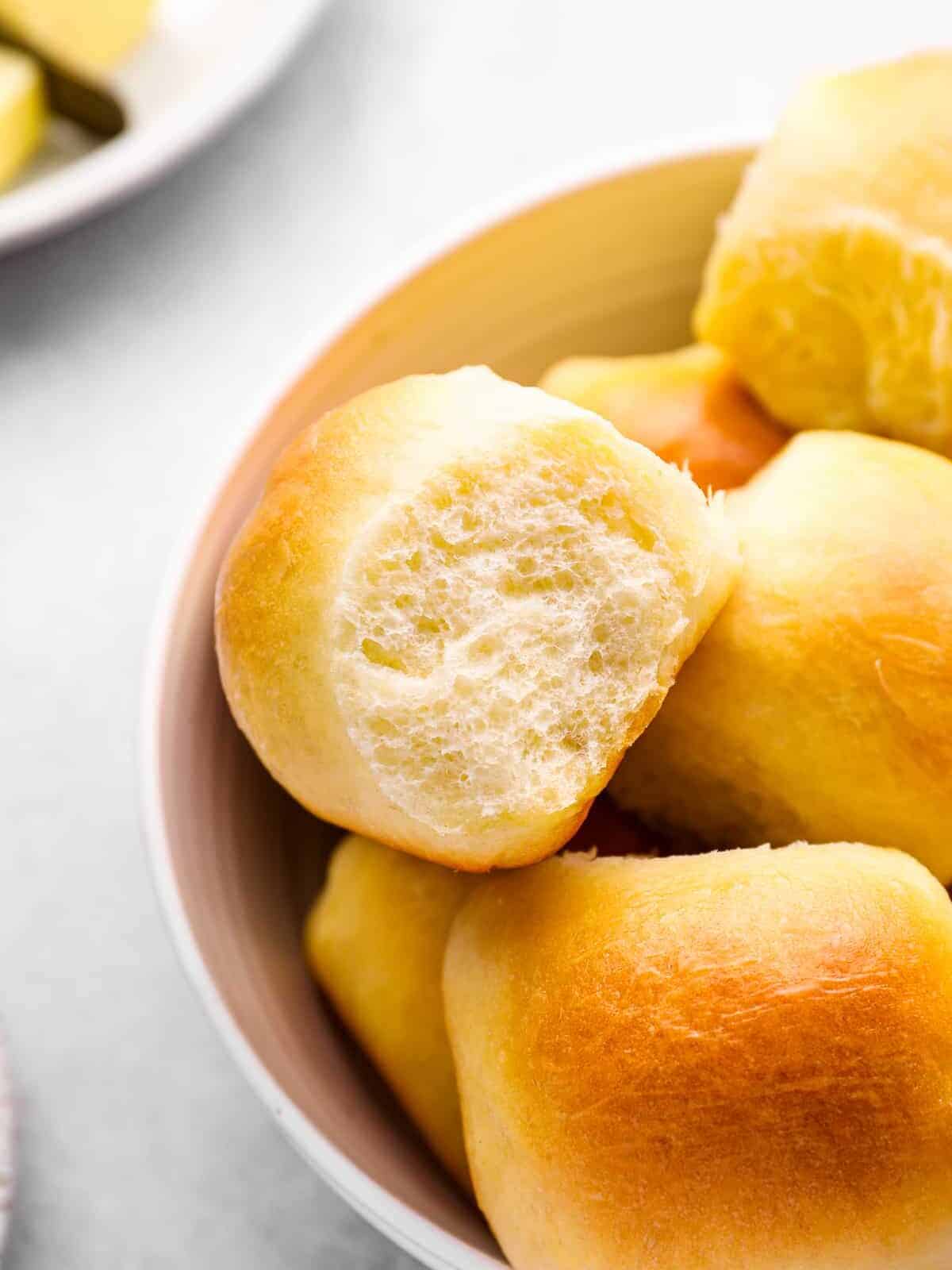
Dinner rolls are named after their purpose, which is to be an easily-passed side dish to accompany a meal!
Instant yeast is ready to be used right out of the package, whereas active dry yeast is coated to preserve its freshness. Because of this coating, you need to dissolve active dry yeast in warm (105-110°F) water before using it.
When using instant yeast, your best bet is to check the expiration date. As long as the package is sealed and within the date, the yeast should be good to go. If your bread dough doesn’t rise after the first proofing, your yeast may be old!
Absolutely! To make these dinner rolls by hand, stir together the step 1 and 2 ingredients until well combined. Knead the dough for about 15 minutes, then continue to follow the recipe as written.
Dense or heavy rolls are usually caused by not kneading the dough long enough. Be sure to knead the dough until it is smooth and elastic. If your dough is properly kneaded, it should slowly spring back when pressed with one finger. If it springs back too quickly, it is under-kneaded, and if it does not spring back at all, it is over-kneaded. The same tips can be used to tell if the dough has been proofed enough. Too springy means under-proofed and not springy enough means over-proofed.
There are a few culprits for hard dinner rolls. First, you may have added too much flour. Be sure to measure your flour using the spoon-and-level method to avoid using too much. Second, the dough may be over-mixed. Over-mixed dough will not spring back when pressed gently with a finger. Finally, the rolls may simply be overbaked. Perfectly baked rolls should be golden brown on top and 190°F internally.
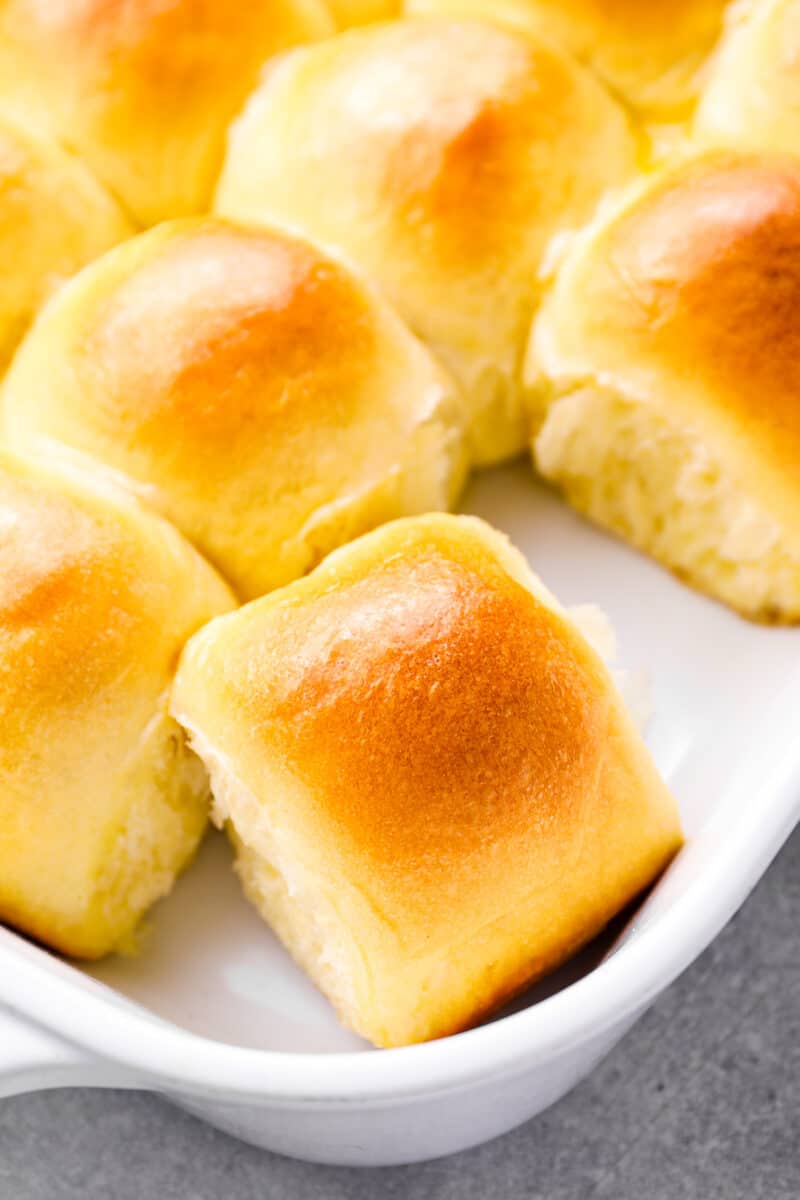
How to Make Ahead and Store
These dinner rolls are a great make-ahead recipe. You can prepare the dough through step 6, then place it in the refrigerator overnight to proof slowly. Continue the recipe as written the next morning!
Store leftover dinner rolls in an airtight container at room temperature for up to 3 days or in the refrigerator for up to 5 days.
How to Freeze and Reheat
You can freeze these rolls shaped, risen, or fully baked.
- Shaped: Shape the rolls and place them on a baking sheet with space between them. Freeze for 8-12 hours, then transfer to a Ziplock bag and store for up to 3 months. Thaw at room temperature for 3-5 hours, until risen. Bake as directed.
- Risen: Let the rolls rise completely, then freeze in a Ziplock bag for up to 3 months. Thaw at room temperature until soft, about 2 hours. Bake as directed.
- Fully Baked: Freeze fully-baked dinner rolls in a Ziplock bag for up to 3 months. Thaw at room temperature for about 2 hours and reheat in a 350°F oven for 10-15 minutes before serving.
Serving Suggestions
Every meal will be better off once you add these dinner rolls to the plate. They truly go with everything, so whatever you’re cooking, this is sure to be the best side dish. I especially love them with Coq au Vin, Air Fryer Beef Tenderloin, Turkey Meatloaf, or Instant Pot Pineapple Brown Sugar Ham.
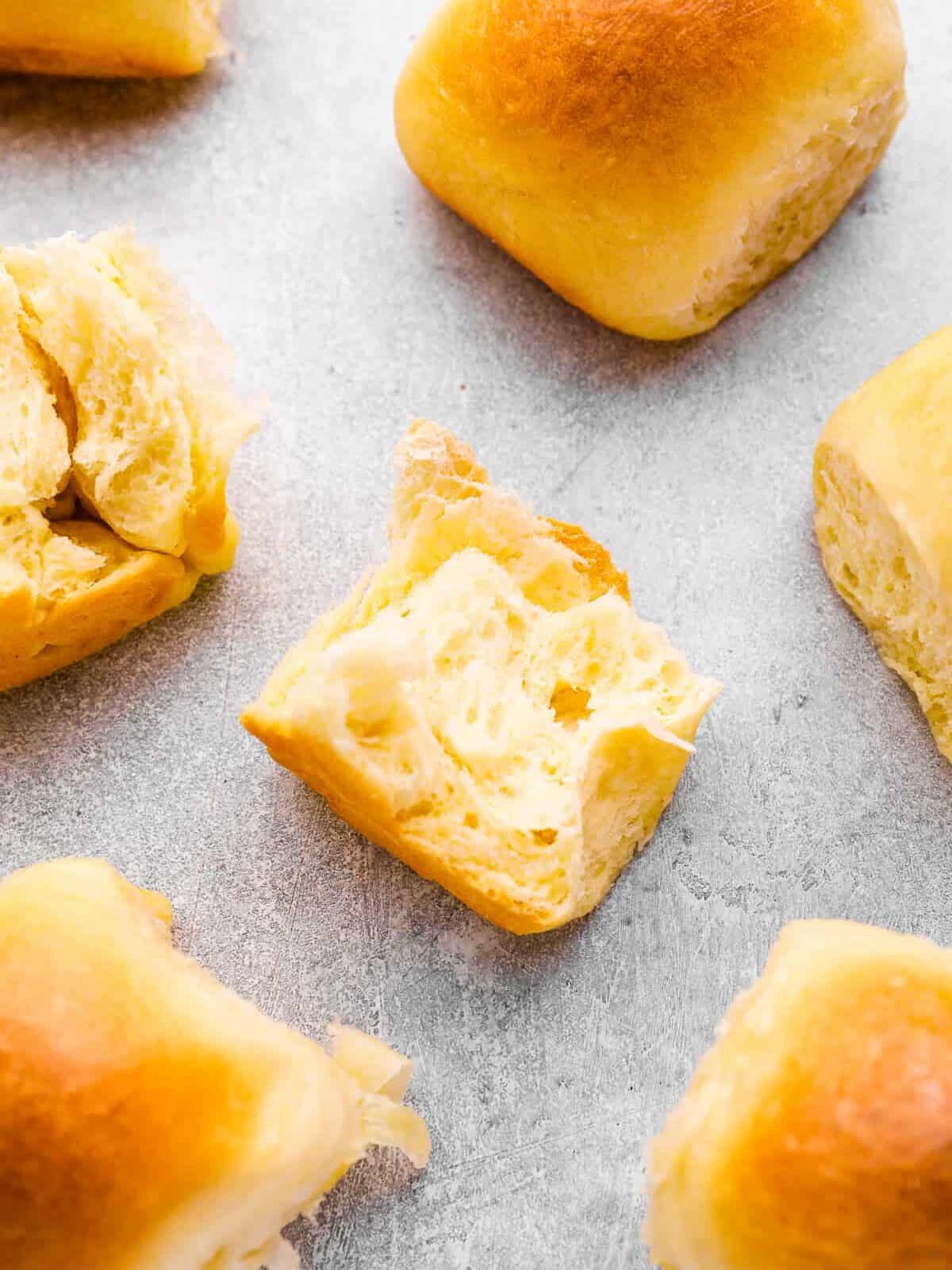
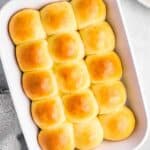
Homemade Dinner Rolls Recipe
Equipment
-
Kitchen Scale (optional)
Ingredients
- 4 cups bread flour 480 grams
- 2¼ teaspoons instant yeast 7 grams (1 envelope)
- 1½ teaspoons kosher salt 5 grams
- 1 cup milk 227 grams
- ½ cup unsalted butter 113 grams (1 stick), plus more for brushing
- ¼ cup granulated sugar 50 grams
- 2 large eggs 100 grams, room temperature and beaten
Instructions
-
In the bowl of a stand mixer, whisk the flour, yeast, and salt. Transfer the bowl to the mixer and secure the dough hook.4 cups bread flour, 2¼ teaspoons instant yeast, 1½ teaspoons kosher salt
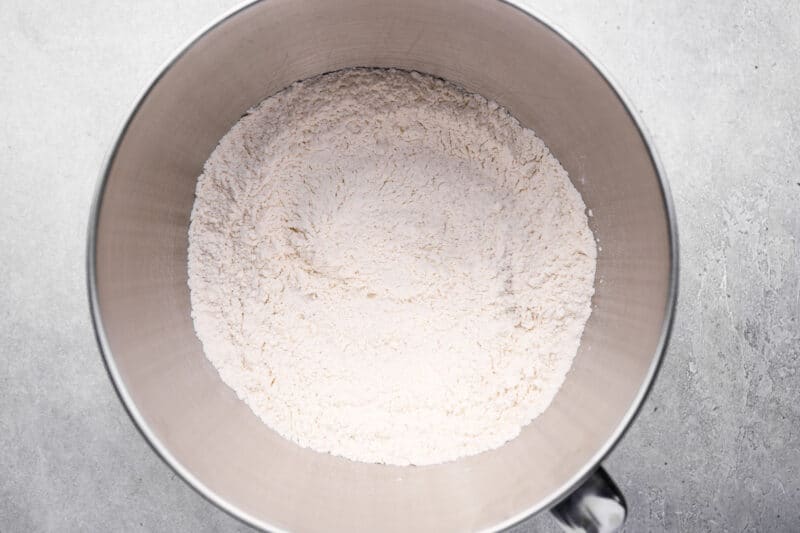
-
In a saucepan, heat the milk, butter, and sugar until it reaches 120-130°F. Add to the mixer with the dry ingredients.1 cup milk, ½ cup unsalted butter, ¼ cup granulated sugar
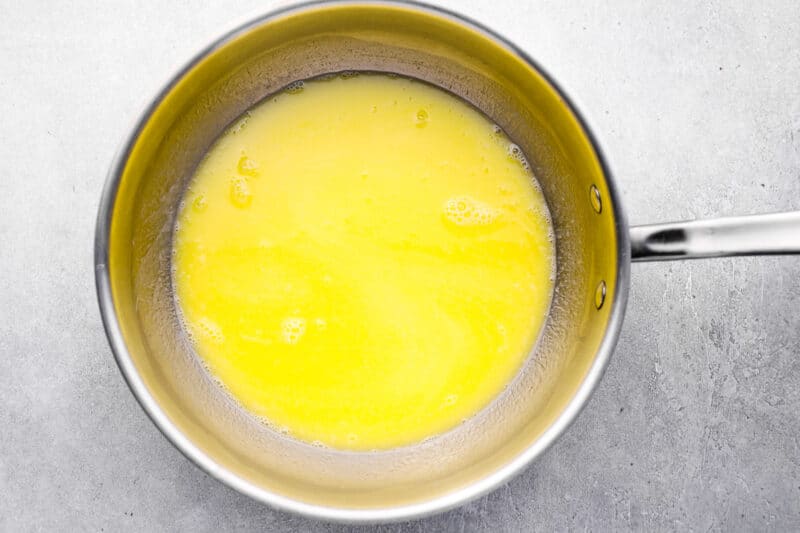
-
Start the mixer on low and work up to medium speed. Mix for 2 minutes until combined.
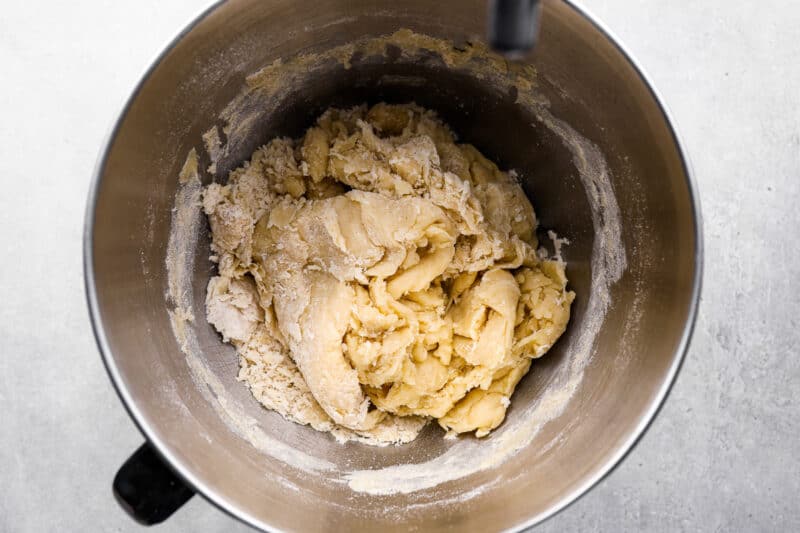
-
Add in the eggs and mix on low, increasing to medium, until combined.2 large eggs
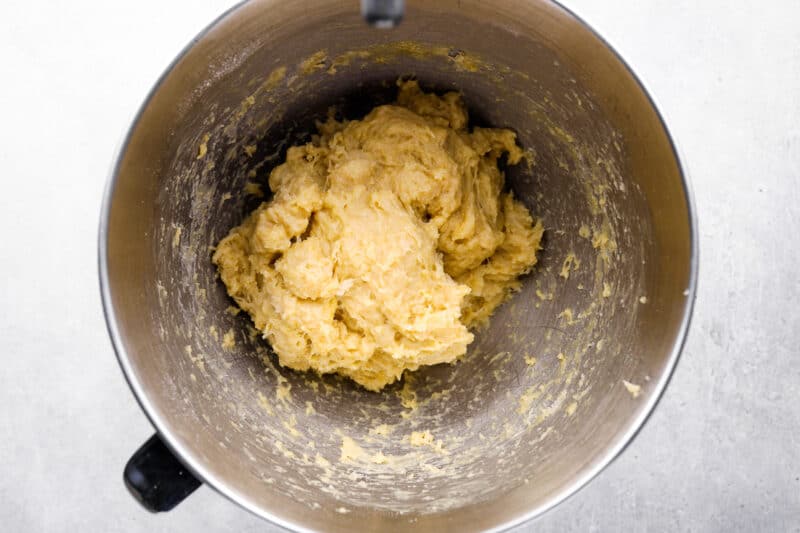
-
Increase the speed to medium high and mix for 3 minutes.
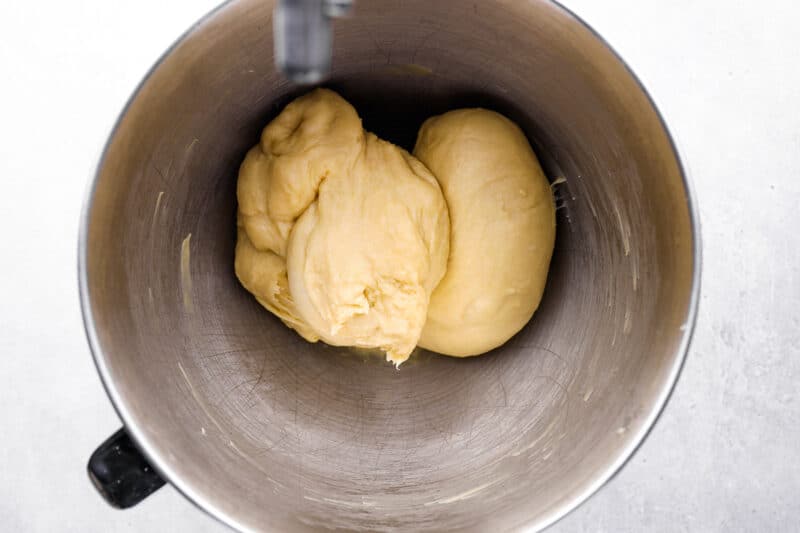
-
Oil a large bowl, rub the oil up the sides to coat. Transfer the dough to the bowl and roll it around to coat it with the oil.
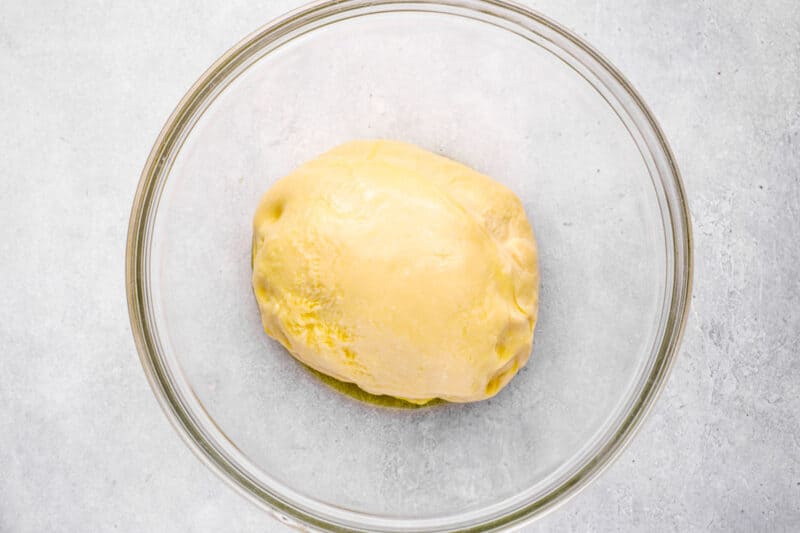
-
Cover and let rise until doubled in size, about 60-90 minutes.
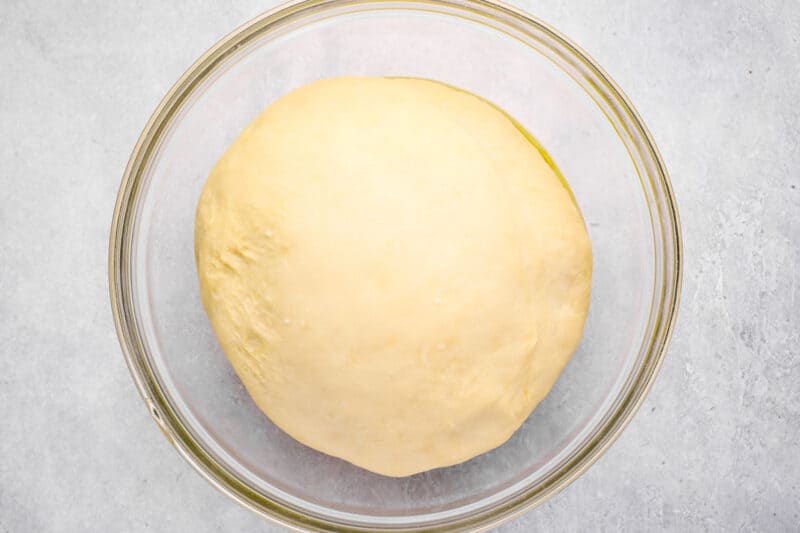
-
Grease a 9×13-inch baking pan.
-
Punch down the dough and turn it out onto a floured surface.
-
Divide the dough into 15 equal portions (about 65 grams per roll). Roll each portion into a round smooth ball. (Watch the video to see our method!), then place them in the prepared baking dish.
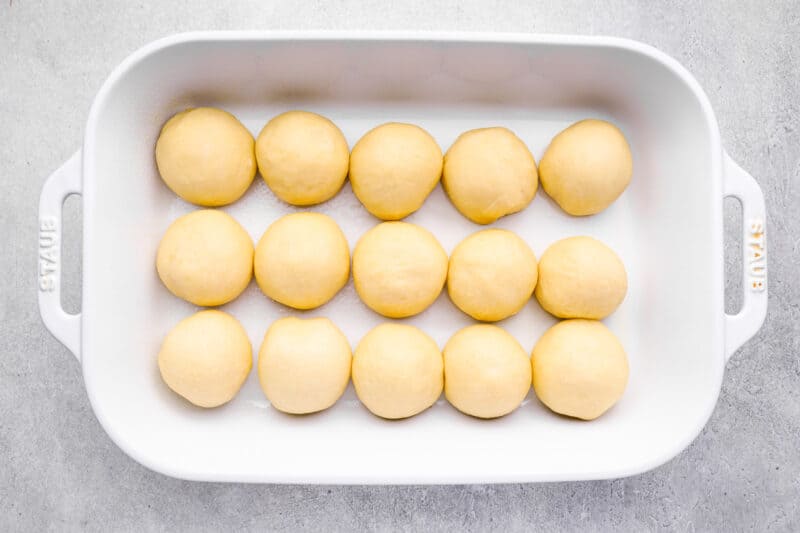
-
Cover the rolls and let rise until doubled, about 60-90 minutes.
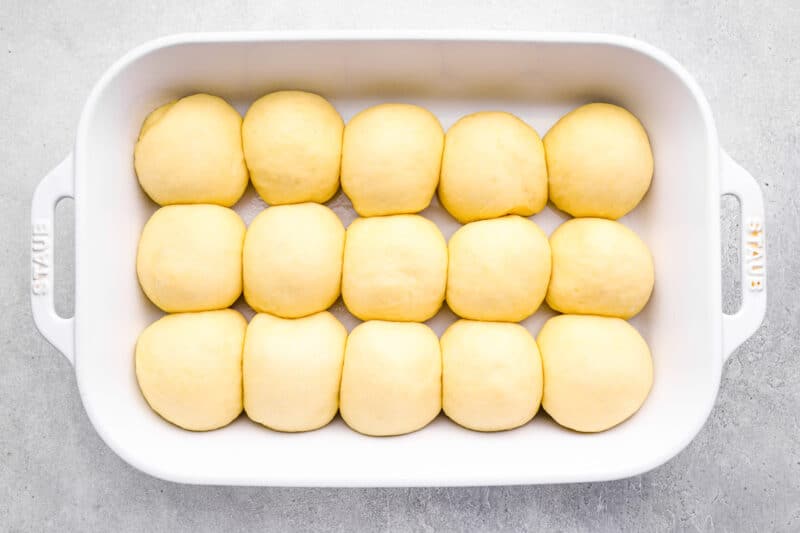
-
Halfway through the rise, preheat the oven to 350°F.
-
Bake for 20-25 minutes or until the rolls are browned and cooked through.
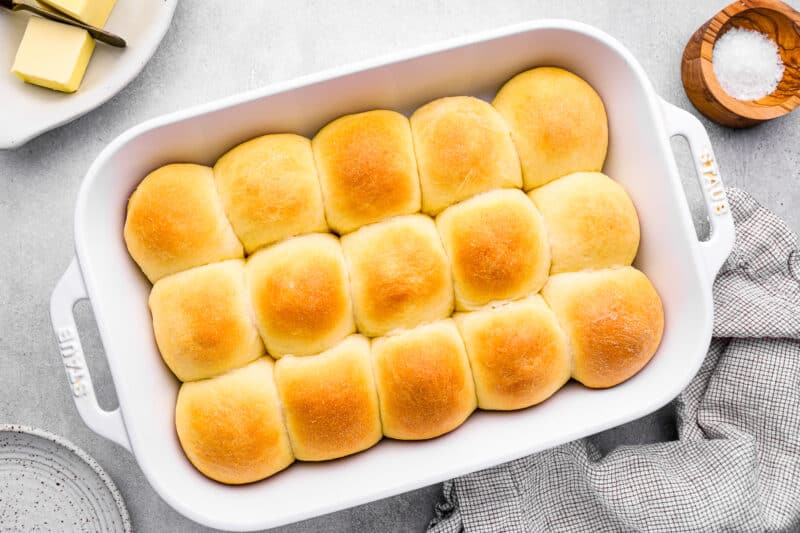
-
Brush with melted butter and serve warm!
Video
Notes
- Make sure your yeast isn’t expired!
- Measure your flour using the spoon-and-level method to avoid dense, hard rolls.
- Take care not to overheat the butter/milk/sugar mixture; otherwise, you could kill the yeast.
- If the dough is too sticky, add up to an additional ⅓ cup of flour, 1 tablespoon at a time.
- Tent the rolls with foil if they are browning too quickly in the oven.
Nutrition
More Dinner Roll Recipes We Love
- Hawaiian Rolls
- Naan Rolls
- Sweet Potato Rolls
- Parker House Rolls
- Homemade Crescent Rolls
- Make Ahead Yeast Rolls
- Garlic Pull Apart Rolls
The post Homemade Dinner Rolls appeared first on The Cookie Rookie®.
0 Commentaires